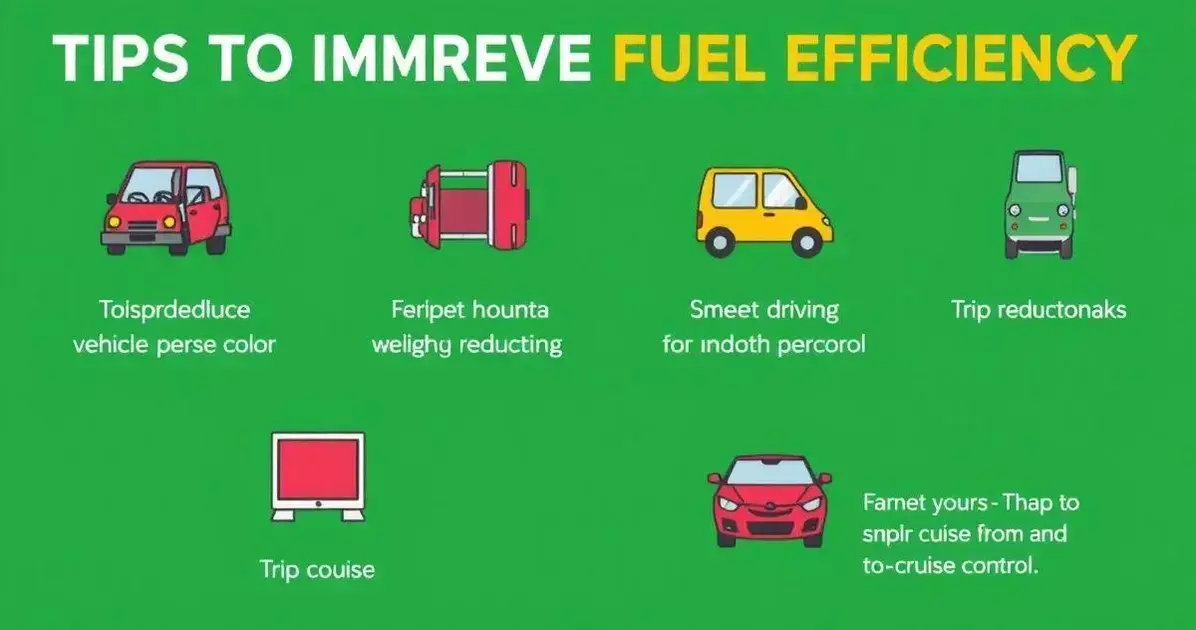Announcements
Fuel economy is one of those topics that directly impacts your wallet — yet many drivers still overlook it. Understanding how your car uses fuel isn’t just for car enthusiasts; it’s something every driver can benefit from.
It’s not only about saving money — it’s about reducing your environmental footprint too. Cars that burn less fuel release fewer emissions, which is a win for both you and the planet.
Want to pick up easy tips, bust some common myths, and find out how to boost your fuel efficiency without overthinking it? Keep reading — you’re about to get the inside scoop.
Announcements
Understanding Fuel Economy
Understanding fuel economy is essential for every driver who wants to save money and reduce their environmental impact. Fuel economy simply refers to how efficiently a vehicle uses fuel. It is usually measured in miles per gallon (MPG) or liters per 100 kilometers (L/100km). The higher the MPG, the better the fuel economy, which means you can drive farther on less fuel.
Why Fuel Economy Matters
Fuel economy is important for several reasons. First, it helps you save money. By improving your vehicle’s fuel efficiency, you reduce the amount spent on gasoline. This is especially beneficial as fuel prices continue to rise.
Announcements
Environmental Impact
Secondly, better fuel economy leads to lower carbon emissions. Vehicles that consume less fuel release fewer greenhouse gases, contributing to a cleaner environment.
Fuel Economy Ratings
When shopping for a vehicle, it’s helpful to check its fuel economy ratings. These ratings are usually displayed on the window sticker of new cars and provide valuable information on how many miles per gallon you can expect in city and highway driving.
Driving Habits and Fuel Economy
Your driving habits play a significant role in determining your vehicle’s fuel economy. For instance, rapid acceleration and heavy braking can decrease fuel efficiency, while smooth driving at a consistent speed can improve it.
Vehicle Maintenance
Finally, keeping your vehicle well-maintained is crucial. Regular oil changes, proper tire inflation, and using the recommended fuel type can help maximize your fuel economy.
Factors Affecting Fuel Economy
There are several factors affecting fuel economy that drivers should be aware of to maximize their vehicle’s efficiency. Understanding these factors can lead to better decisions and ultimately save money.
Vehicle Type
The type of vehicle you drive plays a significant role in fuel economy. Smaller cars are generally more fuel-efficient than larger SUVs or trucks. This is due to the weight and engine size, which directly impact fuel consumption.
Driving Conditions
Driving conditions also affect fuel economy. Stop-and-go traffic, for example, can significantly lower your MPG. In contrast, highway driving, where speed is more consistent, tends to yield better fuel efficiency.
Driving Habits
Your driving habits can influence fuel economy as well. Aggressive driving that includes rapid acceleration and hard braking can decrease efficiency. Practicing smooth acceleration and braking can improve your gas mileage.
Maintenance of the Vehicle
A well-maintained vehicle is essential for optimal fuel economy. Regular oil changes, air filter replacements, and ensuring your tires are properly inflated can all contribute to better fuel efficiency.
Weather Conditions
Weather can also play a role in how much fuel your vehicle uses. Extreme temperatures can affect engine performance and tire pressure, leading to increased fuel consumption. For example, using air conditioning in hot weather can make your engine work harder and reduce fuel efficiency.
Tips for Improving Fuel Efficiency

Improving fuel efficiency is essential for saving money and reducing environmental impact. Here are some valuable tips for improving fuel efficiency that can make a difference.
Maintain Your Vehicle
Regular maintenance of your vehicle is key. This includes oil changes, air filter replacements, and ensuring the tires are properly inflated. A well-maintained vehicle operates more efficiently.
Drive Smoothly
Adopting smooth driving habits can lead to better fuel efficiency. Avoid rapid acceleration and hard braking, as they can waste more fuel. Instead, aim for steady speeds and gentle acceleration.
Reduce Weight and Drag
Extra weight can hurt your vehicle’s fuel economy. Remove unnecessary items from your trunk or backseat. Additionally, reducing aerodynamic drag by keeping windows closed and removing roof racks can further enhance efficiency.
Plan Your Trips
Planning your trips can save fuel. Combining errands into a single trip and avoiding congested routes can help maximize fuel efficiency. Try to avoid driving during peak traffic times.
Use Cruise Control
Using cruise control on the highway allows your vehicle to maintain a constant speed, which can improve fuel economy. This helps avoid unnecessary speed fluctuations which can lead to wasted fuel.
The Future of Fuel Economy Technology
The future of fuel economy technology is bright, with many advancements on the horizon that promise to improve how we use and conserve energy in vehicles. Automakers and researchers are exploring several innovative solutions.
Electric Vehicles
One of the most significant changes is the rise of electric vehicles (EVs). These cars use batteries instead of gasoline, leading to much lower fuel costs and zero tailpipe emissions. Battery technology is continually improving, offering longer ranges and faster charging times.
Hybrid Technology
Hybrid vehicles combine traditional combustion engines with electric motors to optimize fuel efficiency. This technology allows for better mileage in city and highway driving, reducing fuel consumption overall.
Smart Technology
Advancements in smart technology are also shaping the future. Vehicles equipped with GPS and real-time traffic data can analyze routes to minimize fuel usage. Additionally, smart driving assistance systems help drivers maintain efficiency by providing feedback on their driving habits.
Alternative Fuels
Research into alternative fuels, such as hydrogen and biofuels, is ongoing. These fuels have the potential to reduce our reliance on fossil fuels and lower vehicle emissions. Hydrogen fuel cells, for example, produce electricity through a chemical reaction with oxygen, leaving only water as a byproduct.
Recycling and Sustainability
Sustainable practices in manufacturing and recycling vehicle components also contribute to improved economy technology. Using lighter materials can reduce overall vehicle weight, leading to higher fuel efficiency. Manufacturers are focusing on sustainability in production processes and the lifecycle of vehicles.







